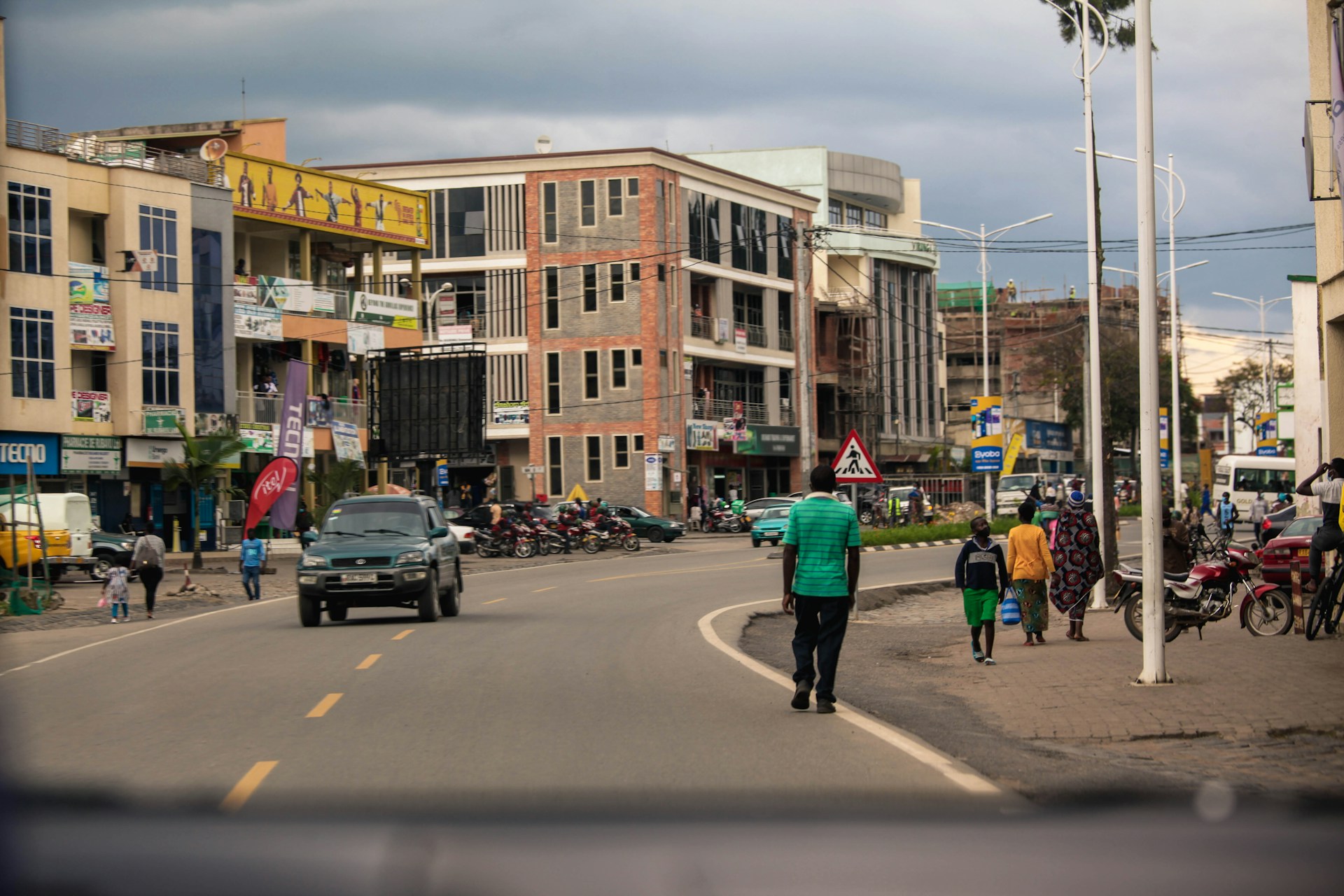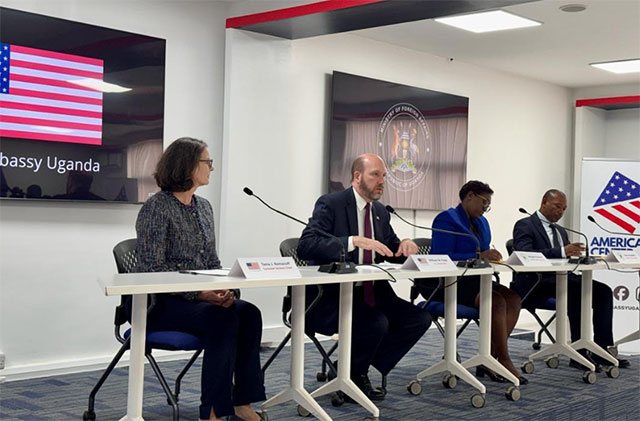Innovative App 'Neibar' Empowers African Communities Through Gifting

In many African communities, a prevailing paradox exists: usable items are discarded by those who no longer need them, while nearby residents struggle to afford even basic necessities. Despite the presence of hand-me-down cultures and second-hand markets, a significant gap remains where free, dignified access to goods is scarce. Recognizing this challenge, Ugandan software developer Namwanza Ronald founded Neibar in 2024. This innovative app is designed to facilitate the free exchange of pre-owned items, effectively extending their lifespan and meeting critical needs within low-income households.
Ronald’s vision for Neibar is deeply rooted in social and environmental responsibility. His mission is to significantly reduce waste and bridge inequality gaps across African communities by making the process of gifting pre-owned items not only easy and accessible but also stigma-free. The platform operates on a location-based model, allowing users to conveniently list various items—ranging from household goods to school and workplace materials—that they no longer require. This setup ensures that neighbors can easily connect and benefit from items available within their immediate vicinity.
The Neibar app, currently available on Android, streamlines the gifting process through a user-friendly interface. Upon signing up with basic personal and location information, users gain access to a dashboard displaying categories of available items. When an item is listed for donation, neighbors within the relevant area are promptly notified via email. Items can then be reserved on a first-come, first-served basis. To ensure smooth and secure transactions, the app incorporates end-to-end encrypted chats, enabling givers and recipients to discuss details and agree on a safe, public location for item pickup, such as parks, cafes, or designated community zones.
To prevent potential misuse, such as hoarding items for commercial resale, Neibar has implemented robust safeguards. The platform limits each user to a maximum of five item reservations per day. Furthermore, the system actively monitors user activity, capable of flagging individuals who repeatedly reserve items within unusually short intervals. These measures are crucial to maintaining the platform’s integrity and ensuring that items genuinely reach those in need rather than being exploited for profit.
The impact of Neibar on beneficiaries is often immediate and profound. Sabbi Derrick, a computer science student at Makerere University in Uganda, experienced this firsthand. Struggling to keep pace with his coursework due to the lack of a personal laptop—a device costing a prohibitive UGX600,000 to UGX700,000 ($171 to $200) locally—Derrick often relied on borrowing from a friend, hindering his progress. Upon discovering Neibar via Facebook, he signed up and soon received a used laptop from a stranger in his neighborhood. This crucial gift significantly improved his academic performance and enabled him to advance his tech skills.
Similarly, in Kenya, Nabatte Kevina turned to Neibar when seeking essentials for her growing daughter. Facing financial pressure, she successfully reserved and secured a much-needed bed through the app. For Kevina, Neibar provided a practical solution that alleviated the burden of purchasing a new item, demonstrating its value in meeting diverse household needs across different regions.
Operationally, Neibar has seen its strongest market penetration in Uganda. However, adoption in other key African countries like Kenya, Nigeria, and South Africa remains slower, and international uptake outside the continent is minimal, largely attributed to the absence of local representatives promoting the platform on the ground. The platform is currently self-funded, with occasional contributions from family members, underscoring its lean operational model.
Ronald is steadfast in his commitment to keeping Neibar free for all users in the long term, recognizing that charging fees would fundamentally undermine its core mission of stigma-free giving, particularly for households that cannot even afford second-hand market prices. While this model is not typically attractive to venture capital, Ronald acknowledges the constant challenge of covering operational costs, including technology maintenance and infrastructure support. To ensure long-term sustainability without compromising its mission, Neibar is actively exploring external funding avenues and strategic partnerships, viewing these as vital for financial stability.
Looking ahead, Ronald envisions an ambitious expansion of Neibar’s impact. His long-term goal is to move beyond mere gifting by establishing a comprehensive local circular economy system within Africa. This involves collecting products at the end of their life cycle and recycling them into new items. This initiative aims to ensure that even after an item has served multiple users, its materials can be repurposed, further closing the loop on waste and fostering sustainable resource management within communities.
You may also like...
When Sacred Calendars Align: What a Rare Religious Overlap Can Teach Us

As Lent, Ramadan, and the Lunar calendar converge in February 2026, this short piece explores religious tolerance, commu...
Arsenal Under Fire: Arteta Defiantly Rejects 'Bottlers' Label Amid Title Race Nerves!

Mikel Arteta vehemently denies accusations of Arsenal being "bottlers" following a stumble against Wolves, which handed ...
Sensational Transfer Buzz: Casemiro Linked with Messi or Ronaldo Reunion Post-Man Utd Exit!

The latest transfer window sees major shifts as Manchester United's Casemiro draws interest from Inter Miami and Al Nass...
WBD Deal Heats Up: Netflix Co-CEO Fights for Takeover Amid DOJ Approval Claims!

Netflix co-CEO Ted Sarandos is vigorously advocating for the company's $83 billion acquisition of Warner Bros. Discovery...
KPop Demon Hunters' Stars and Songwriters Celebrate Lunar New Year Success!

Brooks Brothers and Gold House celebrated Lunar New Year with a celebrity-filled dinner in Beverly Hills, featuring rema...
Life-Saving Breakthrough: New US-Backed HIV Injection to Reach Thousands in Zimbabwe

The United States is backing a new twice-yearly HIV prevention injection, lenacapavir (LEN), for 271,000 people in Zimba...
OpenAI's Moral Crossroads: Nearly Tipped Off Police About School Shooter Threat Months Ago
ChatGPT-maker OpenAI disclosed it had identified Jesse Van Rootselaar's account for violent activities last year, prior ...
MTN Nigeria's Market Soars: Stock Hits Record High Post $6.2B Deal

MTN Nigeria's shares surged to a record high following MTN Group's $6.2 billion acquisition of IHS Towers. This strategi...




